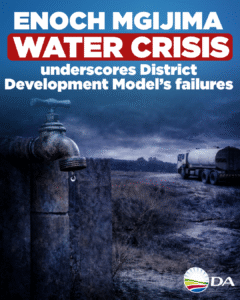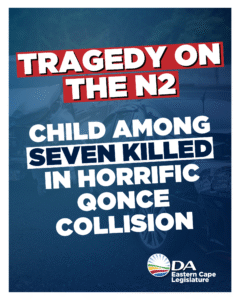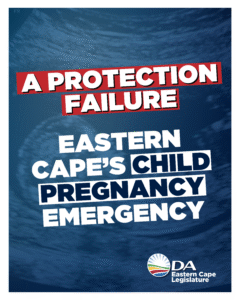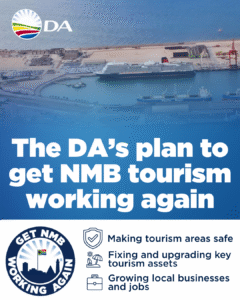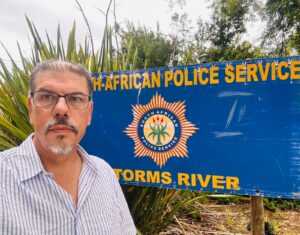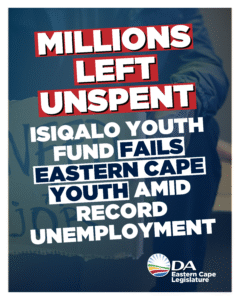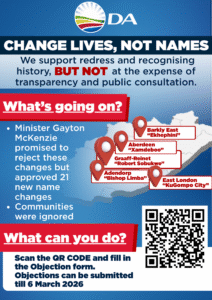Nelson Mandela Bay is running out of water and when Day Zero arrives for large parts of the city by the end of this month, the Metro will enter into infamy as it becomes one of the first metropolitan areas in the world to run out of water.
Oblivious to the fast-approaching crisis due to an ineffective public awareness campaign by the municipality, residents use 299 Ml of water a day, whilst demand should long have been reduced to 230-250 Ml a day.
The combined level of the Metro’s main supply dams is standing at 13,07 %, with two of the Metro’s most important dams, the Churchill and Impofu dams, set to run dry within the next 40 days. This will leave almost a third of the Metro without water reticulation.
Yesterday, 3 May 2022, NMB Executive Mayor, ANC Cllr Eugene Johnson, summoned all councillors to attend a briefing on the drought disaster. This followed repeated demands by the DA for councillors to be briefed. This was the first time that councillors have officially been informed about which areas will run dry.
Councillors were also briefed about emergency plans which include water tanks and tankers, ground water augmentation, and watering points to supply identified areas by installing communal taps.
Most of these emergency measures and water augmentation projects are unable to be implemented due to delays in procurement or project finalisation.
There also seems to be no sense of urgency or plan to encourage residents to drastically reduce their water consumption immediately. Should the Metro be able to reduce its current consumption from 299 Ml to 230 Ml a day, Day Zero could potentially be pushed back to October 2022. This will buy time to complete much needed water augmentation and drought mitigation projects.
No mention was made of emergency measures using any water other than our treated supply, such as reusing effluent or spring water. There was also no plan to accelerate the installation of water restrictors at households and businesses with excessively high water-consumption patterns.
To add to the water woes the Metro does not have an acting executive director for infrastructure and engineering, leaving the directorate leaderless during this critical time.
The DA has repeatedly made recommendations regarding innovative ideas to stretch our water resources, but our calls have not been heeded.
We will once again appeal to national government to intervene in the unfolding crisis, but we also again urge residents to conserve our water resources.
